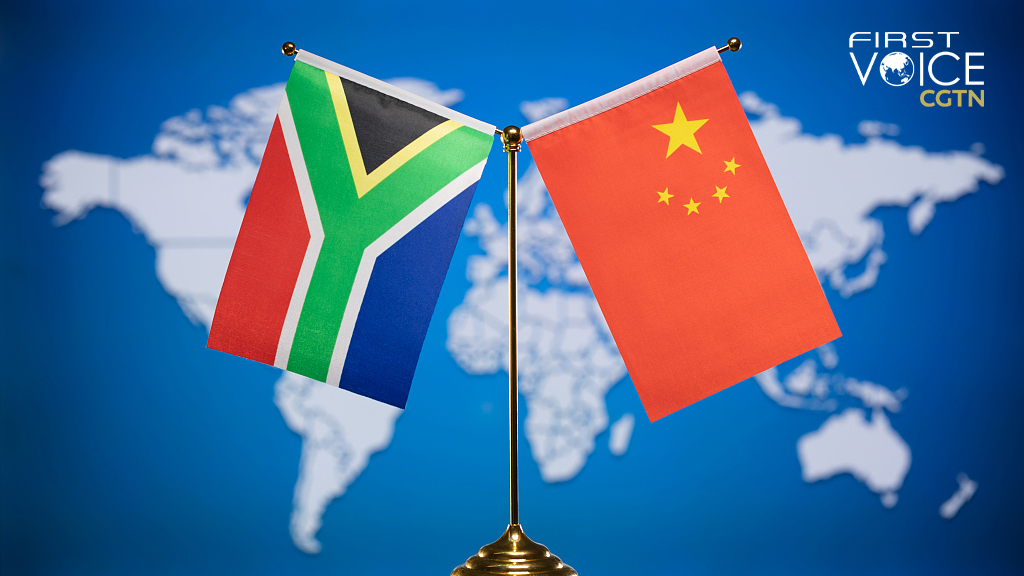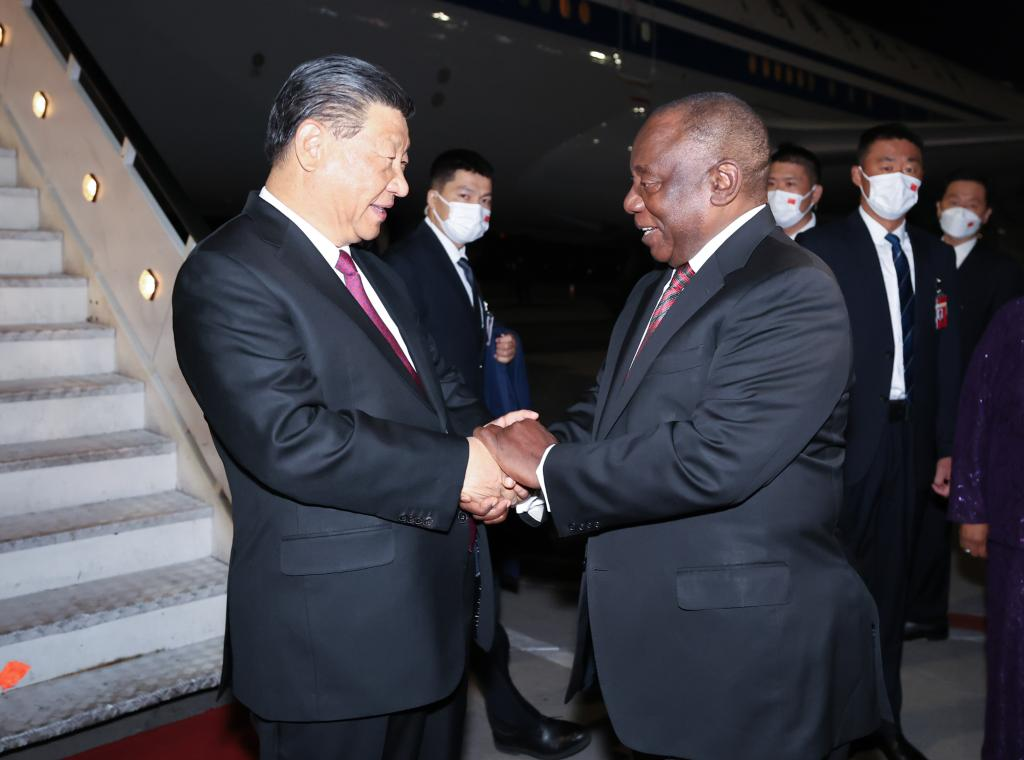
Editor's note: CGTN's First Voice provides instant commentary on breaking stories. The column clarifies emerging issues and better defines the news agenda, offering a Chinese perspective on the latest global events.
On August 22, Chinese President Xi Jinping met with his South African counterpart Cyril Ramaphosa in South Africa during his state visit to the country where he will also be attending the 15th BRICS Summit and co-chair with President Ramaphosa the China-Africa leaders' dialogue.
After 25 years of a special friendship of "comrades plus brothers," the Beijing-Johannesburg bilateral relationship has entered a "golden era" with promising future. As Xi told Ramaphosa in their meeting, at this new historical starting point, carrying forward friendship, deepening cooperation and strengthening coordination are the common aspiration of the two countries and the task entrusted by the times.
Just as President Xi wrote in an article published on South Africa's local newspaper The Star, China-South Africa relationship has achieved “leapfrog development” and that "it is one of the most vibrant bilateral relations in the developing world." The two countries have benefited from the pie of cooperation that is getting bigger.
Economically, China has been South Africa's top trading partner for 14 years in a row, while South Africa has also remained China's largest trading partner in Africa for 13 consecutive years, according to statistics from China's Ministry of Commerce. Bilateral trade reached $28.25 billion in the first half of 2023, up 11.7 percent year-on-year.
South Africa was the first African country to join the Belt and Road Initiative. Chinese goods, including electromechanical equipment, automobiles, and home appliances are trending products among South African customers. In the meantime, wines, rooibos tea, aloe vera gels, and other resource products from South Africa are popular in China.

Chinese President Xi Jinping (left) is warmly greeted by South African President Cyril Ramaphosa upon his arrival at the OR Tambo International Airport in Johannesburg, South Africa, Aug. 21, 2023. /Xinhua
Chinese President Xi Jinping (left) is warmly greeted by South African President Cyril Ramaphosa upon his arrival at the OR Tambo International Airport in Johannesburg, South Africa, Aug. 21, 2023. /Xinhua
Politically, as President Xi wrote in the article, the two countries "give each other firm support on issues involving our respective core interests and major concerns" and "work together to practice true multilateralism and push for the building of a more just and equitable international order." A slew of mechanisms including BRICS, the Forum on China-Africa Cooperation and the Belt and Road Initiative have cleared obstacles for China-South Africa cooperation and made the voices from the developing world stronger.
And China-South Africa's people to people exchange is also picking up speed. The Confucius Institute at Durban University of Technology, for instance, has recruited nearly 10,000 young African students who are fond of Chinese culture over the past decade.
China-South Africa's relationship is in sharp contrast with certain Western countries' exploitation of Africa – bullying the continent for minerals and raw materials. Shouting cooperation, the U.S. – under the "small yard, high fence" strategy – has been attempting to draw regional countries into an anti-China club for selfish geopolitical gains. This typical Cold War mentality has no market in Africa.
Against U.S. pressure, Ramaphosa in July welcomed the launch of the Huawei Innovation Center in his country. Johannesburg has no intention to pick sides between major powers. Improving the country's competitiveness and economic growth is what the South African government needs. The role of Huawei in South Africa's digital transformation for public utility construction cannot be denied. African countries have the wisdom to choose between self-development and U.S.-led decoupling.
President Xi stressed in the article, "What the world needs today is peace, not conflict; what the world wants is coordination, not confrontation." While the U.S. has been stoking confrontation, sacrificing regional countries' interests for its hegemony, China advocates cooperation across the globe for a shared future. African countries want peace and development. This explains the impetus for productive China-Africa cooperation.
Standing at a new historical starting point, the China-South Africa relationship is carrying increasingly important global significance. As two major developing nations wielding enormous influence in their respective continents and the world, China-South Africa relationship will set a model for how countries could work together to achieve common prosperity and development.
(If you want to contribute and have specific expertise, please contact us at opinions@cgtn.com. Follow @thouse_opinions on Twitter to discover the latest commentaries in the CGTN Opinion Section.)